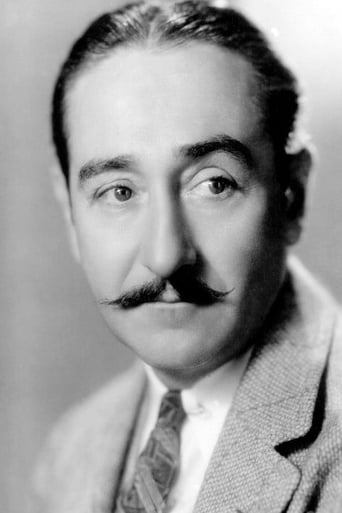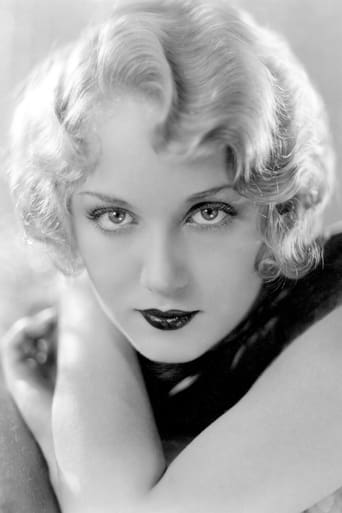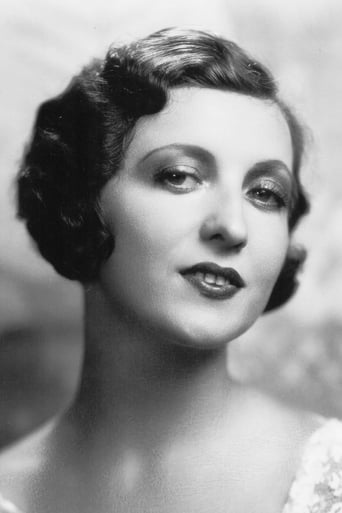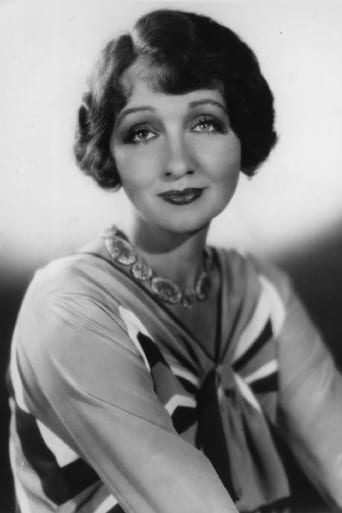Livestonth
I am only giving this movie a 1 for the great cast, though I can't imagine what any of them were thinking. This movie was horrible
Brendon Jones
It’s fine. It's literally the definition of a fine movie. You’ve seen it before, you know every beat and outcome before the characters even do. Only question is how much escapism you’re looking for.
Micah Lloyd
Excellent characters with emotional depth. My wife, daughter and granddaughter all enjoyed it...and me, too! Very good movie! You won't be disappointed.
Payno
I think this is a new genre that they're all sort of working their way through it and haven't got all the kinks worked out yet but it's a genre that works for me.
Antonius Block
When divorce is mutually agreed upon by one couple who announce it happily at a party, it causes others to think about their own marriages. One of their guests, Helen (Mary Duncan), is already cheating on her mild-mannered husband with Tony (Adolphe Menjou, who reminds me of Edward Norton), but the two confess to one another that they've gotten bored with one another. The end of their affair is as amicable as the end of the marriage they've just witnessed. Everyone seems blithe and reasonable about these things, which would ordinarily trigger a lot of passion. Meanwhile, Jack (Norman Foster) has been rumored to cheat on his wife Connie (Leila Hyams), who loves a good flirtation herself, but the two are committed to one another until she catches him in bed with Helen. She then considers taking Tony up on his advances to her. Jack tries to enforce the double standard, telling her "This is a man's game, and you can't play it", but she responds by telling him "You play around as much as you like, and so will I." The movie should get a little credit for its openness about divorce, adultery, and a women's right to sexual freedom. The performances are pretty average, though, and the movie cops out a bit at the end.
richard-1787
That was all I could think about as I sat through the superficial dialogue in this picture full of superficial wealthy characters. Who in 1931, when the Depression was at its worst and those who still had jobs worried about holding on to them, would have wanted to see the idle and superficial rich banter in a not clever way about their love lives? None of the characters here is interesting. Most of them are pretty disagreeable.There were few wealthy people in the USA in 1931, certainly not enough to provide a return on even a small budget picture like this one. Who else went to see it? Who did MGM think would buy tickets?
calvinnme
This is one of those high society precodes in which everybody is cheating on their own spouse with someone else's spouse. Adolphe Menjou plays one of the few single people in this high society group, but he still has quite the taste for the married women. Leila Hyams plays Connie, Menjou's latest woman of interest. However, she is in love with her husband and doesn't care to enter into an affair. Her husband, Jack, has had one affair with a showgirl that Connie doesn't know about. Mix all of this together and you have a variation on the more famous "The Divorcée". It's just a shame that Adolphe Menjou, the most interesting actor in the cast, doesn't spend more time on screen.The studios all made movies like this during the Depression - films about wealthy people who had nothing better to do but play musical chairs with their love lives with not a glimpse of the dire situation that was playing out in the nation. This one is worth sitting through if you run into it, but there is really nothing to distinguish it other than Hyam's always adequate performance in whatever script she was thrown into and, of course, the ever-dashing Menjou.
boblipton
Edgar Selwyn, one of the people who actually founded the studio that would become MGM ("Goldwyn" was originally an amalgamation of his and his brother's name with co-owner Samuel Goldfish, who liked it so well he renamed himself after the studio), directed this rather stagy version of a story about fidelity and infidelity among the well-to-do. Norman Foster, who would go on to become a good B director, is fairly weak and most of the players are rather mannered in their performances. As usual, Adolph Menjou gives a fine performance as Tony Minot, a philanderer who only falls in love with married women.Harold Rossen as the DP does his usual fine job, moving the camera around lightly to maintain composition. The palette, though, is that stark black-and-white that makes everything look as if the film had been overdeveloped. MGM would abandon it in a couple of years




